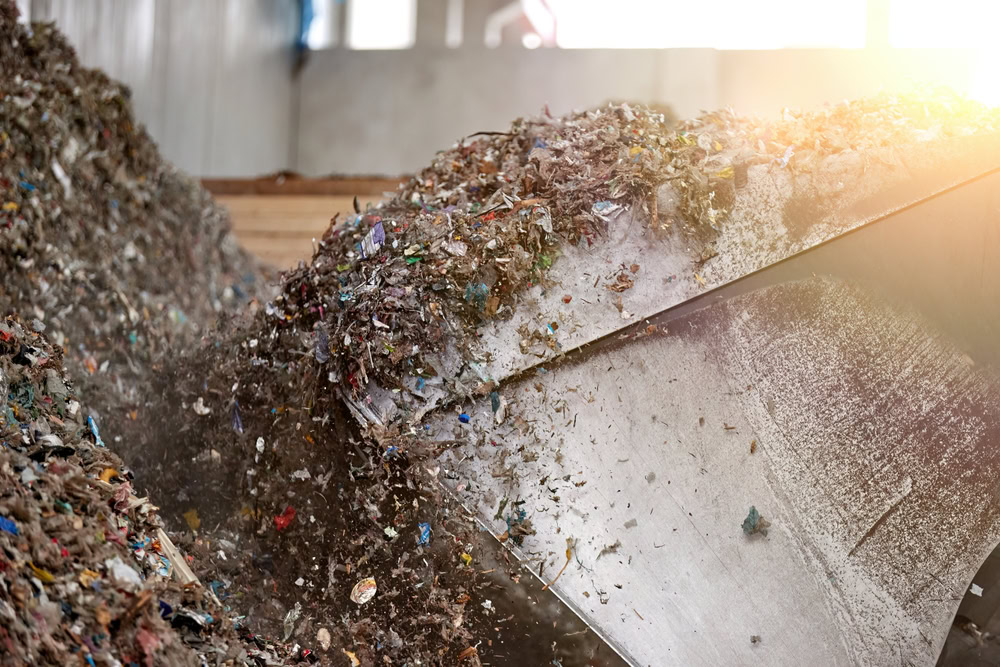The government has today (October 25) outlined plans to make it easier for residual waste treatment facilities to secure planning permission by winning community support, as part of the UK's first ever National Infrastructure Plan.
The plan sets out how the government plans to unlock £200 billion of public and private sector investment to deliver the UK's infrastructure needs over the next five years, including encouraging a “more sustainable” approach to waste management and treatment.

This is incredibly exciting, and it shows how, together, we can help create the right framework for growth
Prime Minister David Cameron
In particular, it emphasises the “valuable” role of energy from waste – and anaerobic digestion in particular – as well as the need to divert biodegradable waste from landfill and to promote sustainability in materials and products via the ongoing waste policy review.
It also details a range of policy measures which the government says will “promote the right incentives and behaviours on waste and produce the required investment in waste management”.
In terms of community buy-in, the government says it plans to “explore how the planning for waste treatment infrastructure, particularly residual waste treatment infrastructure, may be facilitated with greater community support”.
This is likely to win support from waste management companies who have highlighted the need to win community support for waste projects as a potential way to overcome the difficulties they face in securing planning permission for new waste facilities (see letsrecycle.com story).
This was brought into focus by last week's withdrawal of PFI funding for seven council waste treatment projects, with SITA chief executive David Palmer-Jones claiming the decision made it all the more important to address local barriers facing infrastructure development (see letsrecycle.com story).
Energy from waste
The infrastructure plan reiterates the government's commitment to “promote and incentivise” energy from waste – and anaerobic digestion (AD) in particular – as well as its support for recycling incentives for householders and voluntary responsibility deals for businesses.
It also identifies an expansion of AD and also “less carbon intensive fuels” such as solid recovered fuels as having a key role to play in developing a low carbon supply base of energy and long-term reduction in reliance on imported energy.
And, it says the government will “continue to support local authority projects for the treatment of residual household waste”. This is despite last week's withdrawal of PFI money (see letsrecycle.com story).
Prime Minister
Launching the infrastructure plan, Prime Minister David Cameron said it was “incredibly exciting, and it shows how, together, we can help create the right framework for growth in which British business can thrive and compete with the rest of the world.”
The document confirms a number of commitments made in last week's Spending Review to move to a low carbon economy, including the establishment of a Green Investment Bank with £1 billion of government funding and additional “significant” money from asset sales.
It states that the next stage for this will be to complete the design and resting for the bank by spring 2011.
Planning
Elsewhere, the infrastructure plan provides a timetable for the overhaul of the planning regime for major infrastructure projects of ‘national significance' that is being brought about by the abolition of the independent Infrastructure Planning Commission (see letsrecycle.com story).
It reveals details of the revised process will be published by the end of the year. The change means projects such as large-scale energy-from-waste plants will be considered by a unit in the planning inspectorate and decided on by ministers.
It also commits to publish a timetable by the end of the year for issuing the remaining National Policy Statements NPS) that will provide the framework for that planning decision making process, after last week's publication of a re-consultation on the NPS for Energy.
The Localism Bill is set to be published next month, which government said would “be part of a radical reboot of the planning system, helping to facilitate sustainable development and the provision of infrastructure”. The bill is also expected to remove councils' ability to run ‘pay-as-you-throw' trials (see letsrecycle.com story).
And, next month is also scheduled to see the publication of the government's response to the Penfold Review – a process which looked whether the system of non-planning consents was delaying investment in infrastructure projects such as waste and how this could be addressed (see letsrecycle.com story).








Subscribe for free